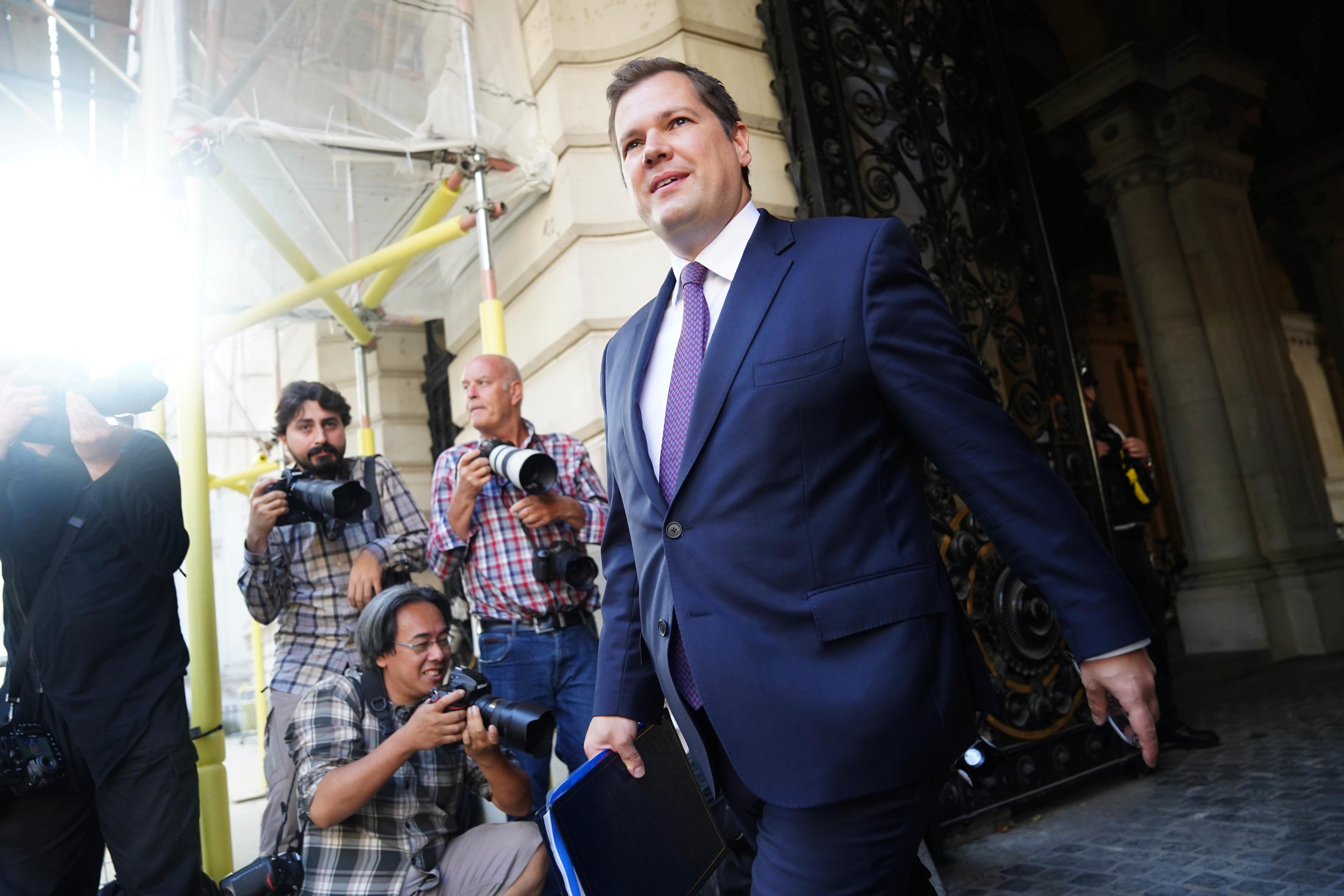NHS would collapse under Tories’ ‘cruel’ plan for crackdown on foreign workers, bosses warn
Almost half of newly recruited nurses are international workers, recent NHS data shows
Your support helps us to tell the story
From reproductive rights to climate change to Big Tech, The Independent is on the ground when the story is developing. Whether it's investigating the financials of Elon Musk's pro-Trump PAC or producing our latest documentary, 'The A Word', which shines a light on the American women fighting for reproductive rights, we know how important it is to parse out the facts from the messaging.
At such a critical moment in US history, we need reporters on the ground. Your donation allows us to keep sending journalists to speak to both sides of the story.
The Independent is trusted by Americans across the entire political spectrum. And unlike many other quality news outlets, we choose not to lock Americans out of our reporting and analysis with paywalls. We believe quality journalism should be available to everyone, paid for by those who can afford it.
Your support makes all the difference.The government’s “divisive” and “unnecessarily cruel” plan to cap the number of foreign NHS workers would cause the healthcare system to collapse, healthcare leaders have warned.
Immigration minister Robert Jenrick is set to present a new plan to curb soaring migration to prime minister Rishi Sunak that would see the number of people coming from abroad to work for the NHS and social care services cut and the minimum salary threshold increased to £35,000.
The Independent understands his plan would propose a ban on social care workers bringing in their families and a cap on the total number of NHS and social care visas issued.
It comes after official figures on Thursday showed net migration in 2022 hit a record 745,000 – sparking a furious bout of Tory infighting, with sacked home secretary Suella Braverman saying they represented a “slap in the face” to voters.
Almost 19 per cent of NHS workers are from overseas and the minister’s plans come as the NHS recorded 112,000 vacant posts this summer while social care recorded 152,000.
Dr Latifa Patel, of the British Medical Association, condemned the move and said the plans were an affront to the international healthcare workers central to the NHS.
“These suggestions are unnecessarily cruel and only serve to vilify those who come to this country and work extremely hard in roles many of us take for granted,” she said.

“Without our international colleagues’ skills and experience, our health system would collapse; the GMC recently highlighted that even with an increase in UK medical school places, it is vital we continue to attract and retain international talent.”
The BMA representative body chair said an arbitrary cap on health and social care visas would do nothing to help solve the workforce crisis and penalising workers by setting a minimum income level and then separating them from their families was “callous and short-sighted”.
"We urge the government to dismiss these dangerous ideas. To do otherwise will decimate the social care workforce and exacerbate issues within the wider NHS, putting further strain on an already creaking system and affecting patient care," she said.
The BMA launched a poll on Twitter today asking doctors how they would be impacted by the proposals.
Dr Jeanette Dickson, chair of the Academy of Medical Royal Colleges, said the workers from overseas have been the “life-blood of the health and care sector in the UK” for decades and it would “years before we lose our reliance on people who come from all over the world to care for the sick and elderly”.
“Already there are vacancies wherever you look, things will become very stretched indeed if the tap is turned off, especially in the low-paid social care sector,” she said.
The latest NHS data shows as of June 2023 there were 264,822 non-British staff working across the NHS – 18.7 per cent of all workers. This was up from 222,107 the year before.
Royal College of Nursing chief nurse, Professor Nicola Ranger, said the “divisive policy proposals” would demonise international colleagues “who are keeping our health and care service afloat amidst mass staff shortages”.
“The proposals mean the government would force internationally educated nurses to make impossible choices, leave their families, including their children behind, to come to work in the UK,” she added.
Her comments come as most recent figures show 48 per cent of newly recruited nurses this year came from other countries.
Within adult social care, at the end of 2022-23, 291,000 of the 1.2 million staff were recorded as non-British, with 192,000 from outside of the EU.
Danny Mortimer, chief executive of NHS Employers, part of the NHS Confederation which represents hospitals, said it was concerned that capping the number of foreign workers or limiting their ability to bring loved ones over would have a negative impact on services and plans to tackle staff shortages.
“Before any changes to visa rules are brought in there must be an urgent impact assessment of how they will impact on recruitment levels to make sure that our recovery plans, services and staffing levels are not jeopardised,” he said.
And Unison’s general secretary Christina McAnea said anyone calling for restrictions on the essential workers the country relies upon “has no understanding of the healthcare system, and the pressures it faces”.
She added: “Ministers playing to the gallery and demonising migrant workers offer nothing to the debate about how to fix social care … yet again, we have ministers seeking scapegoats instead of solutions.”
When quizzed on the plan, Rishi Sunak dodged the question but said net migration levels need to “come down to more sustainable levels”.
“I’m very clear that the levels of migration are too high… I’ve been clear about that,” he said.
Join our commenting forum
Join thought-provoking conversations, follow other Independent readers and see their replies
Comments